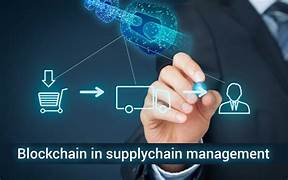How Blockchain Technology Impacts Supply Chain Transparency
In today’s globalized economy, supply chains are increasingly complex, involving numerous stakeholders, transactions, and processes across different geographical locations. Transparency in the supply chain has become a critical issue, as consumers and businesses demand greater accountability and traceability. Blockchain technology, with its decentralized and immutable nature, is emerging as a transformative tool to enhance supply chain transparency. This article explores how blockchain impacts supply chains, the benefits it offers, the challenges it presents, and its potential to revolutionize the industry.
Understanding Blockchain Technology
At its core, blockchain is a distributed ledger technology that records transactions across multiple computers in a way that ensures the data is secure, transparent, and tamper-proof. Each transaction is grouped into a block, which is then linked to the previous block, forming a chain. Key features of blockchain that make it suitable for supply chain management include:
- Decentralization: Data is stored across a network of computers, eliminating the need for a central authority.
- Immutability: Once recorded, data on the blockchain cannot be altered or deleted.
- Transparency: All participants in the blockchain network can view and verify transactions.
- Security: Advanced cryptographic techniques protect the integrity of the data.
The Need for Transparency in Supply Chains
Modern supply chains face several challenges that stem from a lack of transparency, including:
- Counterfeit Products: The proliferation of fake goods undermines brand integrity and consumer trust.
- Ethical Concerns: Consumers demand assurance that products are sourced ethically, without exploiting labor or harming the environment.
- Inefficiencies: A lack of visibility can lead to delays, errors, and increased costs.
- Regulatory Compliance: Businesses must meet stringent regulations and prove adherence to quality and safety standards.
Blockchain technology addresses these challenges by providing a transparent and verifiable record of every transaction and process within the supply chain.
Applications of Blockchain in Supply Chains
- Traceability: Blockchain enables end-to-end tracking of products, from raw materials to the final consumer. For example:
- A coffee company can use blockchain to trace beans from the farm to the cup, ensuring quality and ethical sourcing.
- Pharmaceutical companies can verify the authenticity of drugs, reducing counterfeit products.
- Smart Contracts: Smart contracts are self-executing agreements with terms directly written into code. They automate processes such as payments and delivery, reducing delays and disputes.
- Real-Time Tracking: Blockchain integrates with IoT devices to provide real-time updates on the location and condition of goods, enhancing inventory management and logistics.
- Enhanced Collaboration: Blockchain creates a single source of truth for all stakeholders, improving communication and trust among suppliers, manufacturers, and retailers.
- Compliance and Certification: Blockchain records certifications, inspections, and regulatory compliance data, ensuring transparency and simplifying audits.
Benefits of Blockchain for Supply Chain Transparency
- Improved Trust: Blockchain builds trust by providing an immutable and verifiable record of all transactions, fostering confidence among consumers and business partners.
- Fraud Prevention: By ensuring data integrity, blockchain reduces the risk of fraud and counterfeiting.
- Cost Efficiency: Automated processes and real-time tracking reduce administrative costs and inefficiencies.
- Sustainability: Companies can demonstrate their commitment to sustainability by tracking and sharing data on environmental impact, such as carbon footprints.
- Enhanced Consumer Confidence: Transparency in sourcing and production processes reassures consumers, boosting brand loyalty and reputation.
Challenges in Implementing Blockchain in Supply Chains
- High Implementation Costs: Setting up blockchain systems requires significant investment in technology and infrastructure.
- Integration with Existing Systems: Integrating blockchain with legacy systems and ensuring interoperability can be complex and time-consuming.
- Scalability Issues: Blockchain networks may struggle to handle the large volume of transactions typical in global supply chains.
- Data Privacy Concerns: Balancing transparency with the need to protect sensitive business information is a challenge.
- Lack of Standardization: The absence of industry-wide standards for blockchain implementation creates inconsistencies and hampers adoption.
Real-World Examples of Blockchain in Supply Chains
- Walmart: Walmart uses blockchain to track the origin of fresh produce, reducing the time needed to trace contaminated food from days to seconds.
- IBM Food Trust: This blockchain platform connects farmers, distributors, and retailers to enhance food safety and traceability.
- De Beers: The diamond company employs blockchain to verify the authenticity and ethical sourcing of diamonds, ensuring they are conflict-free.
- Maersk and TradeLens: Maersk’s blockchain platform TradeLens digitizes shipping processes, improving efficiency and reducing paperwork.
Future Trends and Opportunities
- Blockchain and Artificial Intelligence (AI): Combining blockchain with AI can enhance predictive analytics and decision-making in supply chains.
- Tokenization: Tokenizing assets on the blockchain can streamline ownership and transfer processes, enabling more flexible financing options.
- Standardization Efforts: Industry-wide initiatives to develop blockchain standards will accelerate adoption and interoperability.
- Regulatory Support: Governments and regulatory bodies are increasingly recognizing the potential of blockchain, creating policies to encourage its use.
- Decentralized Autonomous Supply Chains: Fully automated supply chains managed by blockchain and smart contracts could become a reality, reducing human intervention and errors.
Conclusion
Blockchain technology is revolutionizing supply chain transparency by providing a secure, immutable, and decentralized platform for tracking and verifying transactions. While challenges remain, the benefits of increased trust, efficiency, and sustainability make blockchain a game-changer for the industry. As adoption grows and technology evolves, blockchain will play an increasingly central role in building transparent, resilient, and ethical supply chains, reshaping the future of global commerce.


